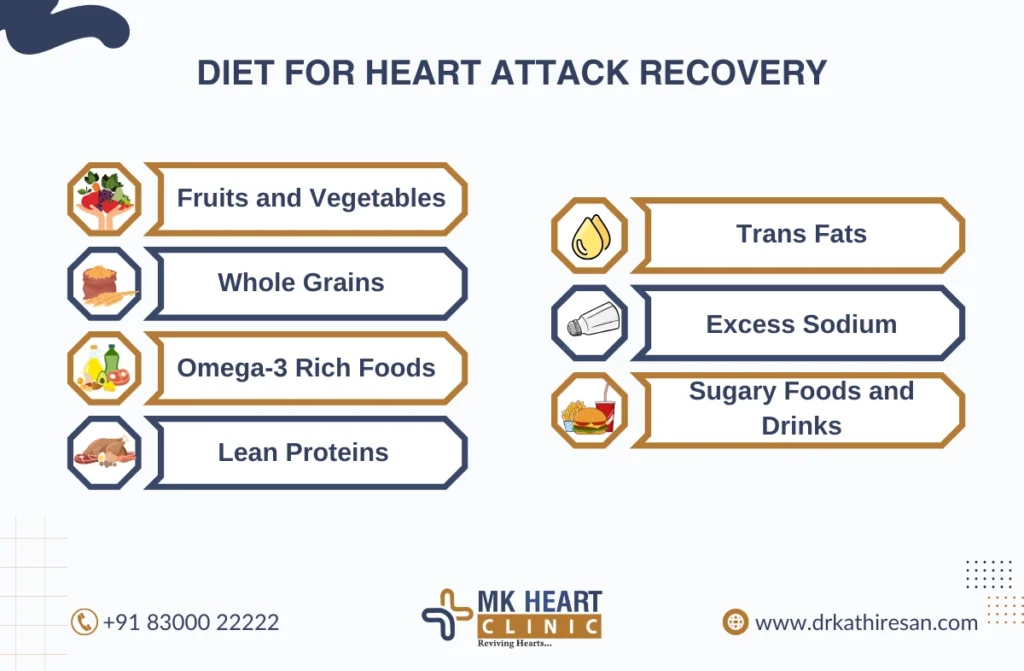Heart Attack Recovery is a journey that combines medical care, lifestyle adjustments, and emotional resilience. Recovery often feels daunting, but with the right support, you can regain your health and confidence. Experts like Dr. Kathiresan are instrumental in guiding patients through this process, ensuring that they heal and thrive. This comprehensive guide explores all aspects of recovery, including diet, exercise, and emotional well-being, offering practical tips to help you on your path to wellness.
How Long is Recovery?
The duration of Heart Attack Recovery depends on the severity of the heart attack and individual health factors.
- Mild Heart Attacks: Recovery can take 6 to 8 weeks. During this time, patients are advised to gradually increase their physical activity and follow a heart-healthy diet.
- Severe Heart Attacks: Recovery may take longer, especially if the heart muscle is significantly damaged. Patients often require cardiac rehabilitation and ongoing medical supervision.
Factors such as age, pre-existing conditions, and lifestyle choices influence the recovery timeline. Knowing What to Do After a Heart Attack, including regular check-ups with your doctor, is essential to monitor progress and make necessary adjustments..

What Can I Expect During Recovery from a Heart Attack?
Recovering from a heart attack involves physical, emotional, and lifestyle changes.
- Physical Changes: You may experience fatigue and mild chest discomfort initially. These symptoms typically improve with time and proper care.
- Emotional Challenges: Anxiety, depression, and fear of another heart attack are common. Joining a support group or consulting a therapist can provide valuable coping mechanisms.
- Lifestyle Adjustments: Expect to adopt healthier habits, including regular exercise, a balanced diet, and stress management techniques. Quitting smoking and limiting alcohol are also crucial.
- Physical Changes: Fatigue and mild chest discomfort are common during recovery, but they typically improve with time and proper care.
- Lifestyle Adjustments: Adopting healthier habits like regular exercise, a balanced diet, stress management, quitting smoking, and limiting alcohol are essential for recovery.
Heart Attack Recovery is not just about healing the heart but also rebuilding confidence and restoring quality of life.
Exercises to Recover from Heart Attack
Physical activity is a cornerstone of Heart Attack Recovery. Here are the best exercises:
- Walking: Start with short walks of 10–15 minutes, gradually increasing the duration. Walking improves circulation, boosts stamina, and strengthens the heart.
- Stretching: Gentle stretching exercises help improve flexibility and relieve muscle stiffness, especially if you’ve been resting for an extended period.
- Aerobic Exercises: Activities like swimming or cycling can strengthen the heart, provided your doctor clears you for moderate-intensity workouts.
Always consult your healthcare provider before starting any exercise program to ensure it aligns with your recovery goals. Knowing What to Do After a Heart Attack includes understanding the appropriate level and type of physical activity for your specific condition.
Diet for Heart Attack Recovery
A heart-healthy diet is critical during Heart Attack Recovery. Proper nutrition not only aids in healing but also reduces the risk of future heart attacks.
What to Include:
- Fruits and Vegetables: Packed with vitamins, minerals, and antioxidants, these foods support heart health. Aim for a variety of colors on your plate.
- Whole Grains: High in fiber, whole grains like oats, quinoa, and brown rice help lower cholesterol levels.
- Omega-3 Rich Foods: Salmon, walnuts, and flaxseeds reduce inflammation and improve heart function.
- Lean Proteins: Choose skinless poultry, fish, and plant-based proteins like beans and lentils.
What to Avoid:
- Trans Fats: Common in processed and fried foods, these increase bad cholesterol.
- Excess Sodium: Too much salt raises blood pressure, so choose low-sodium options.
- Sugary Foods and Drinks: These contribute to weight gain and can strain the heart.
Maintaining a balanced diet is one of the most effective ways to support long-term recovery and prevent complications.
Can Your Heart Fully Recover After a Heart Attack?
The extent of recovery after a heart attack depends on the damage sustained by the heart muscle.
- Mild Damage: In cases of minor heart attacks, the heart can recover completely with proper care and lifestyle changes.
- Severe Damage: Significant damage may lead to reduced heart function, but medications, rehabilitation, and healthy habits can improve quality of life.
Recovering from a heart attack requires consistent effort and a positive outlook. With the guidance of experts like Dr. Kathiresan, many patients achieve remarkable recoveries.
Recovering from Heart Attack: Emotional and Social Support
Heart Attack Recovery isn’t just physical—it also involves emotional healing.
- Seek Support: Family, friends, and support groups can provide encouragement and reduce feelings of isolation.
- Manage Stress: Practice relaxation techniques like deep breathing, meditation, or yoga to improve mental well-being.
- Gradual Adjustment: Ease back into your daily routine, balancing work and relaxation to avoid burnout.
Recovery is a time to rebuild your mental and emotional resilience, allowing you to face the future with confidence.
What to Do After Heart Attack
Immediate Actions
- Follow Medical Advice: Take prescribed medications and attend all follow-ups.
- Join Cardiac Rehab: A supervised program helps rebuild strength and confidence.
Ongoing Care
- Monitor Symptoms: Be vigilant for chest pain, dizziness, or other warning signs.
- Adopt Healthy Habits: Stay active, eat a balanced diet, and manage stress.
Life After Heart Attack: Adjusting to a New Normal
Living a fulfilling life after a heart attack is entirely possible with the right approach.
- Stay Physically Active: Regular exercise strengthens your heart and enhances overall well-being.
- Heart-Healthy Diet: Continue following a balanced diet to maintain optimal heart health.
- Ongoing Monitoring: Keep up with medical appointments and tests to track your recovery progress. Navigating Life After a Heart Attack requires regular monitoring to ensure your heart health remains stable
A heart attack can be a turning point, inspiring positive lifestyle changes that enhance both health and happiness.
Life Expectancy After a Heart Attack by Age
Age is an important factor in recovery and Life expectancy after heart attack by age.
- Under 50: Younger individuals generally recover faster and have better long-term outcomes with proper care. Early interventions and adherence to healthy habits play a key role in extending life expectancy.
- Over 65: Recovery may take longer, but with the right treatment and lifestyle changes, many older patients live full and active lives, often surpassing initial expectations for Life expectancy after heart attack by age
Conclusion
Heart Attack Recovery is a journey that requires commitment, support, and expert guidance. With the help of specialists like Dr. Kathiresan, patients can regain their health and confidence, paving the way for a brighter future. If you or someone you know is recovering from heart attack, don’t hesitate to reach out for personalized care and advice. Contact Dr. Kathiresan’s clinic today to take the first step toward recovery.

